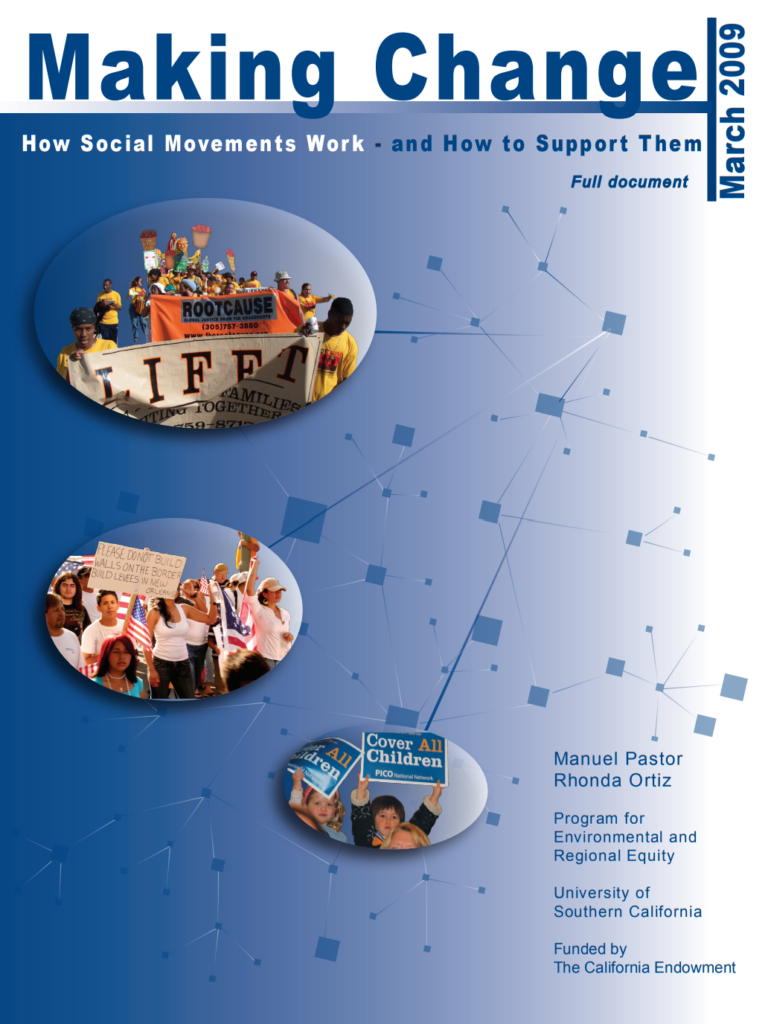
Innovating Cross-Movement Leadership and Learning
March 2009
By Manuel Pastor and Rhonda Ortiz
Please note: reports dated earlier than June 2020 were published under our previous names: the USC Program for Environmental and Regional Equity (PERE) or the USC Center for the Study of Immigrant Integration (CSII).
Social movements are a hidden underpinning of the American story. Using the tools of relationship building, community mobilization, and symbolic protest, they have helped bring us civil rights, labor protections, and even a healthier environment, sparking people’s aspirations, imaginations, and actions for a better nation.
Why then has funding of these movements been difficult to obtain and sustain? Some suggest that funders often want more immediate and measurable outcomes—moving a nation to live up to its promise is important but hard to quantify. And yet in recent years, there has been renewed philanthropic interest and openness to investing in social movements, community organizing, and policy change, and an understanding that this will require a new level of patience and a new set of relationships with grantees.
This document seeks to provide a guidepost to both funders and the field by detailing what makes for a successful social movement, what capacities need to be developed, and what funding opportunities might exist.
The document itself comes from a different model of funder-grantee relationships. The paper from which this Executive Summary draws was initially requested by The California Endowment as its leaders were thinking through the connection between place-based comprehensive change and state-level policy in the Golden State. Thinking that the connection between the two might be social movements and community organizing, TCE commissioned us, the Program for Environmental and Regional Equity (PERE), to do a series of interviews with leading organizers—and asked us to write something that would make sense to these activists as well as foundation leaders.



